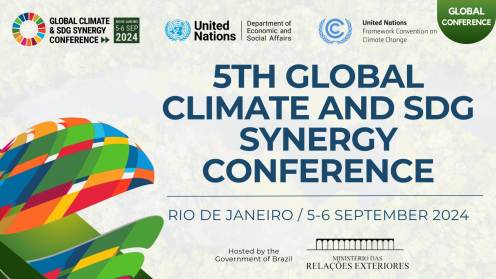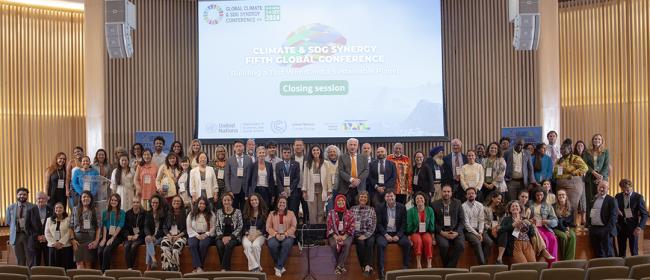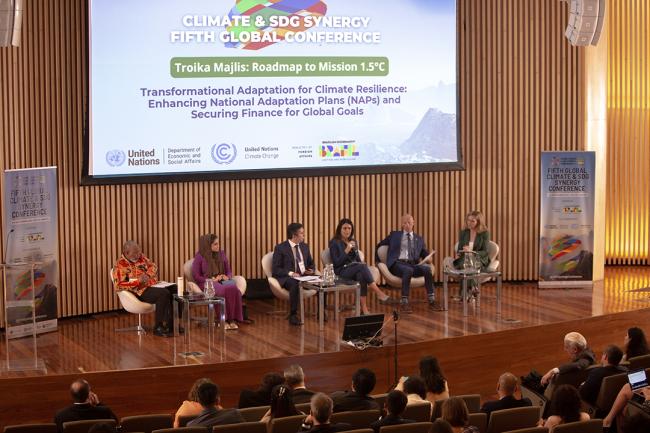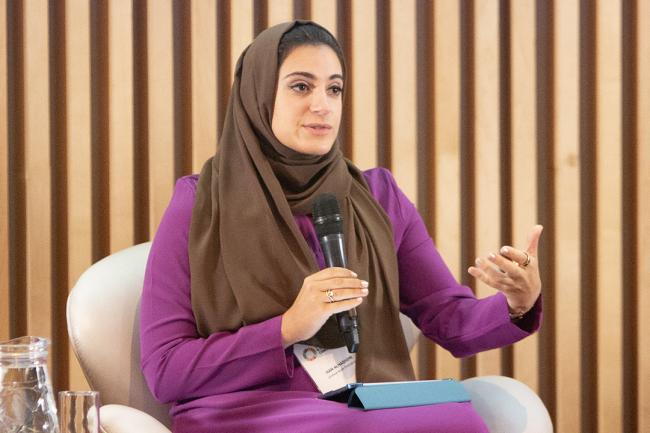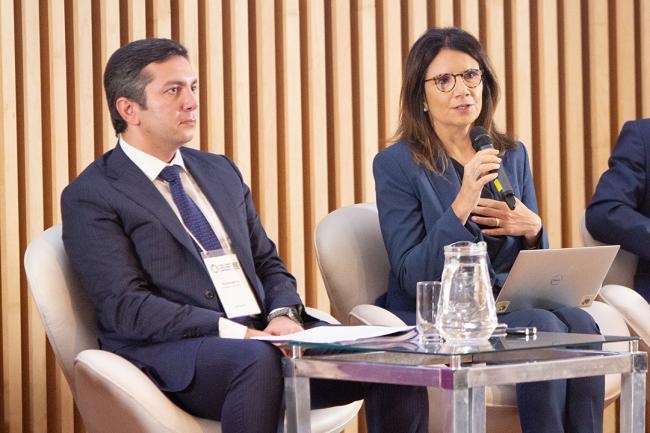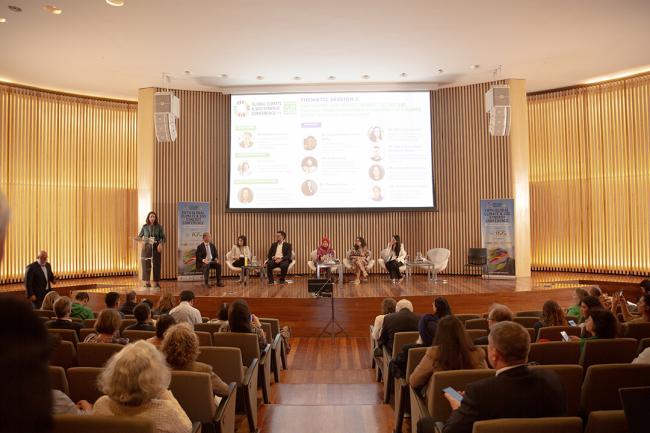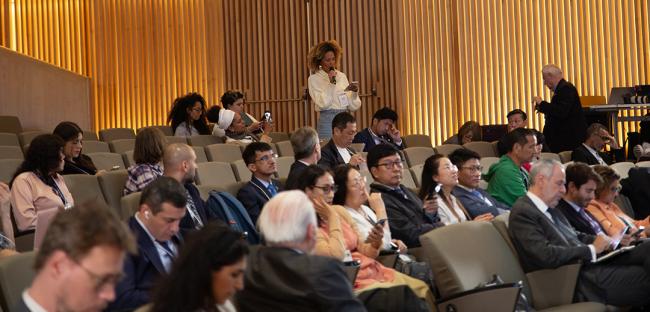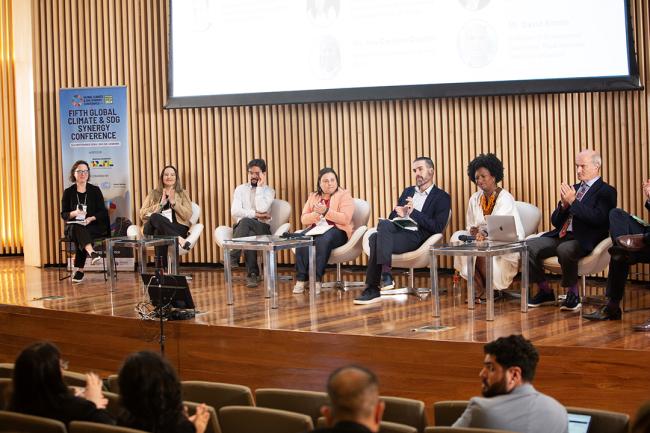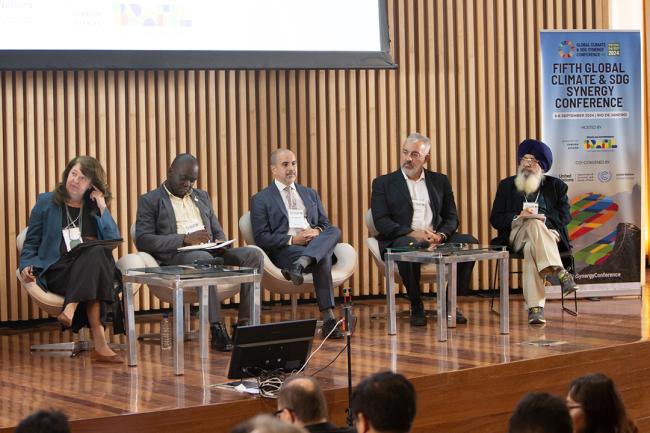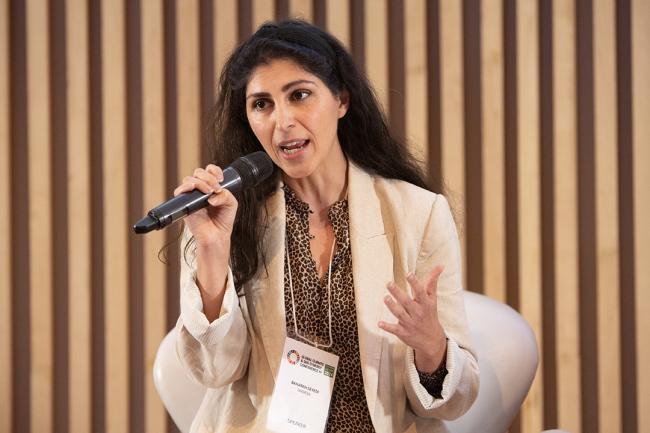The Troika Majlis – the coalition of the Presidencies of the 28th, 29th, and 30th sessions of the Conference of the Parties (COPs) to the United Nations Framework Convention on Climate Change (UNFCCC) – took center stage on the morning of the final day of the conference, leading a dialogue on transformational adaptation for climate resilience.
Yalchin Rafiyev, Deputy Foreign Minister, Azerbaijan, shared his government’s vision for the upcoming UNFCCC COP by noting that the urgency for adaptation will be front and center in COP 29 negotiations, which will take place in Baku, Azerbaijan this November.
Hana AlHashimi, Head of the Office of the Special Envoy for Climate Change, United Arab Emirates (UAE), noted that, during the UAE’s COP Presidency, her government encouraged an integrated approach, and asserted the UAE is employing in its own national adaptation plans bringing together policies on health, poverty, food, water, and sectoral planning.
Ana Toni, Ministry of the Environment and Climate Change, Brazil, stated that her government, in its role as current G20 President and COP 30 President, is emphasizing the need to scale-up finance, articulate the fiscal cost of inaction, and call for a sizeable increase in private sector funding.
Panelists and audience members encouraged inclusivity and broadening the definition of vulnerable populations as agents of change in possession of centuries of important traditional knowledge.
Considering issues such as environmental migrants and corruption in the context of climate and environmental efforts and the achievement of the Sustainable Development Goals (SDGs), a thematic session examined how to ensure a just and equitable pathway to ensure a 1.5°C future.
During a session addressing the interlinkages between sustainable patterns of production and consumption and climate efforts, speakers reinforced that effective transformation starts with incremental changes in daily habits.
The final thematic session of the conference focused on building climate action and resilience at local levels. Panelists discussed the inclusion of subnational governments and cities as decision-makers of the international system; smart transportation solutions; and how to strengthen linkages between traditional knowledge, urban planning, and Nationally Determined Contribution (NDCs).
The conference concluded with key messages and recommendations emerging from the roundtables and thematic sessions. The main takeaways emphasized that working towards the the goals of the Paris Agreement and the SDGs together will result in more co-benefits than trade-offs, and encouraged addressing systemic barriers and bridging the financing gap.
Behareh Seyedi, UN DESA, and Daniele Violetti, UNFCCC, thanked participants and organizers for making this conference a success. They noted that it was attended by close to 300 people, had 80 speakers from around the world, and was live-streamed to a global audience.
The conference closed at 4:19 pm GMT-3.
To receive free coverage of global environmental events delivered to your inbox, subscribe to the ENB Update newsletter.
All ENB photos are free to use with attribution. For the 5th Global Conference on Climate & SDG Synergies, please use: Photo by IISD/ENB | Angeles Estrada Vigil
